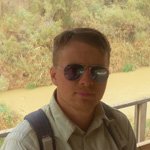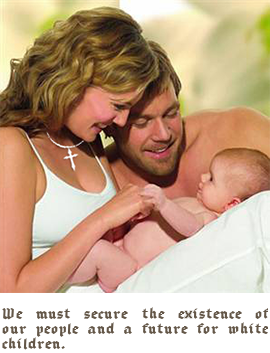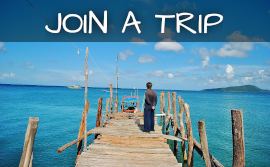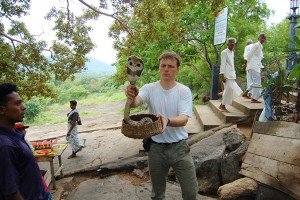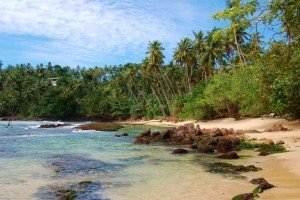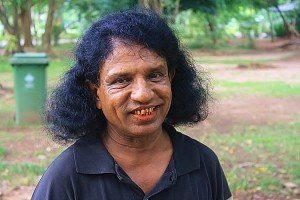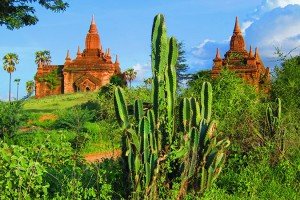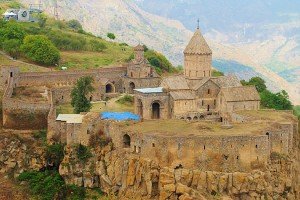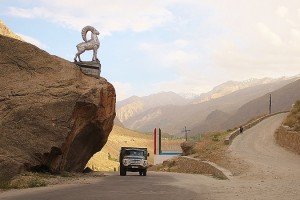Expedition to Bangladesh 2007
All travel reports are translated electronically although minor improvements are sometimes made.
Expedition to Bangladesh 2007
Bangladesh is an adventure for travel connoisseurs who are not afraid of challenges off the beaten track. In Bangladesh, you can ride on the roof of a train, you can also pick tea, drip in the river with the locals or watch river dolphins. Bangladesh is a country of chaos, but let’s better call it ‘a country of relaxation where time stands still’. Bangladesh is an unforgettable adventure, during which even the poorest traveller can feel rich for a moment.
My trip: Benapole-Jessore-Daka-Srimangal-Daka-Benapole
Benapole, Jessore, way to Daki and my first impressions
These are my adventures in Bangladesh. I crossed the border in Benapole where the military treated me very nice because they were raking in all the other luggage and they just waved me. One of the officials only told me that in two days there would be a two day strike so I prepared myself. Then I learned that next strikes were planned soon. As I could have guessed earlier, the state of the citizens of this country was miserable. When I filled up the papers, I was helped by one man and then took a bicycle rickshaw and drove to the bus station in the first village on the border.

But it turned out that tickets to Daka (capital of Bangladesh) are sold out for the next two days. So I took the local bus and drove to a 38km Jessore where my plan was to buy a ticket to Daki. As I could have guessed, riding a local bus proved to be a rather daunting experience. The road was single-track and definitely too narrow to accommodate two buses. My driver drove the signal forward and the smaller ones had to slide sideways. This country, like Nepal, is also famous for road accidents. We were going through rice fields and rows of beautiful banana palms. I was sitting at the window where it all went down, because it was broken but it was nice because I had a shower and people tried to contact me. After this varied ride with joy I got out of the bus and took another rickshaw to get to the bus station. Unfortunately, there were no tickets as the next strike was approaching and there was also a Muslim holiday. For my luck I met a nice gentleman who spoke good English and who went with me to another office to help me. It turned out that after acquaintance I went on someone’s ticket because someone reportedly resigned. So I paid and I did not ask questions anymore. Together with my companion we took another rickshaw and went to the station. There I was told that they would help the foreigner and I could go but I do not know when the bus will arrive. In the meantime, I was introduced to a fabulously cheap dinner of several dishes with dessert.
In Bangladesh I immediately liked it very much, because even in a difficult situation, people wanted to help me. Around the time strikes began, people walked and shouted their slogans, but I thought I was falling again on four paws. In the meantime, I met another Bangladeshi gentleman with whom I talked well but unfortunately he started asking me if I had a girlfriend and when I married her. This topic meets me wherever I go. Days passed and the bus did not arrive. However, the head of the pub next door invited me for tea and wanted to raise me toasts with the crowds. So once again I was the attraction of the entire train station and the area and the people at the train station were tired of waiting. Finally, after eight hours of delay, the bus arrived, or not mine. But as a guest in their country I was allowed to go earlier. To Daki was only 220km but the ride took me 12h and 8h wait. All because of the great fog on the rivers and the fact that ferries were blocked. Also not all bridges were used and therefore we made up the time. In the meantime, I was told that in Bangladesh there is a very difficult political situation and life here is not easy.Already during my first day I was able to convince myself. Great delays, demonstrations and preparations for strikes, and this was just the beginning.

Daka – my adventures in the city a million rickshaws
Either way, I got to Daka and one of the bus passengers pointed me to the hotel. When I told him that I was from Poland he asked about Lech Wałęsa. I have to admit that my first day in Bangladesh was a little disturbing to me, but I did not want to give up yet. I wanted to give this country a chance. I came unfortunately in the wrong moment because January 22 is here elections and very nervous situation and of course already announced for that day strike.
I stayed in a nice hotel in the city center for only 5usd a night. I had a room for myself, downstairs was a dining room and prayer room for Muslims.
Daka was founded in the early 17th century by the Mugali Empire and was originally a small settlement and today it is a multi-million-dollar city. The thing that is very characteristic of Daki is the ubiquitous bicycle rickshaw, of which there are already about half a million. All are also decorated with paintings but this is not exaggerated as it was in Pakistan. First, I went to the national museum. It is a museum that tells the story of this very young country, also presents the art of ancestors and excavations. Of all the exhibitions, I was most interested in the history of the rise of Bangladesh. It was the story depicted in the pictures, about when the Pakistani army invaded Bengal before 1971. There were shown skulls found during the war, napalm bomb victims and all the horrors of the war and the rise of Bangladesh. It reminded me of a little museum of the Saigon war where documents from the American-Vietnamese war were shown.
The next exhibit was animals and among them preserved six-meter fish saw. From the industry of local products for the first time in my life I saw so beautifully decorated beds. Large canopy beds were supported by sculptures of women or animals 1 meter high. Also the upper part was beautifully carved into the motives of women playing trumpets. These were beautiful works of art and it was a pity that I could not bring a camera to the museum.
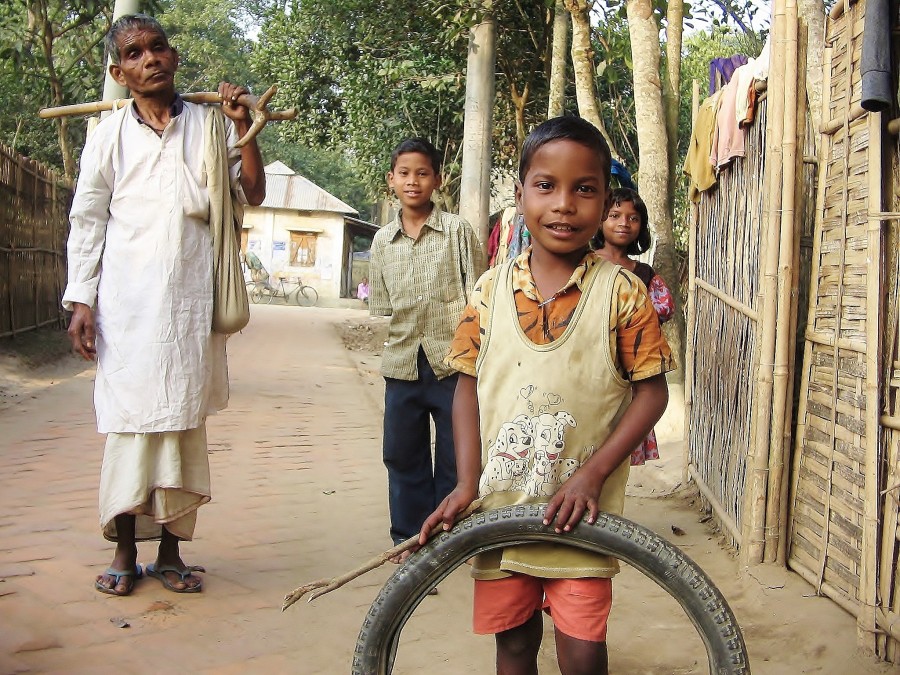
After the museum I went to one of the Hindu temples of XII, located on the lake and consisting of several buildings painted in many colors. I looked around, took a few photos and quickly went to the next facility.This time it was an unfinished Lalbagh fort built in 1677 but then its construction was aborted because one of the princesses died and was considered a bad omen. In the middle there is a large water reservoir, a mosque and a war museum, a mausoleum and gardens. The whole is surrounded by a large wall of defense where you can enter and from where you can see the panorama of the whole object. Finally, there was a time of prayer, so the loudspeakers of the Koran came from the loudspeakers, which made it even more pleasant to receive the place. This is not a magnificent building in India or Pakistan, but it is worthwhile to come here. When I was inside, I was quickly noticed by young Bengali. They were with me asking standard questions and taking pictures of me. Once again I became the biggest attraction of this place, which made me a little tired and after a while I was only photographed. Then I went to a restaurant where one man sat down in front of me and turned on the camera with the light directed at my eyes and then recorded as I was eating. This happened to me the first time though everyone was still very nice. I also noticed that the release of Islam in Bangladesh is not as rigorous as in Pakistan. Here women sit in restaurants with men and there are no separate compartments in the buses. On the other hand, women are a rare sight, and marriages are also arranged. It is still a very religious, Muslim country. My impression after the first day at Daka was very good. People were nice, rickshaws very quick and helpful and food good.
The next day a strike started and I heard voices and demonstrations from the room. So I went to the street to find out if I would have to live in the bunker for a few days and whether it was safe. I entered the very center of the manifesting people, waving the flags of Bangladesh and shouting their slogans. There was also a lot of armed police and police. It turned out that despite the fact that the country is upside down for me was safe. People manifested blocking the streets, shouting from the speakers, and I was alone in the middle of all this, far from any help. After a moment the police called me and asked if everything was okay.All Bengali people complain about the police and say they are corrupt but they were very nice to me.

We also made a souvenir photo. I, armed police and next to the angry crowd. I thanked them for help, took a rickshaw and just went to explore, as if the situation in this country was not concerned. At first, my poor rider took me to the Ashan Manzil – a pink palace, a beautifully built museum. Because of the strike the palace was closed but after long requests they let me in to see him from the outside and take a few photos. The pink palace is one of the few beautiful buildings in Daka and was built in the second half of the 19th century. It was also destroyed by a tornado but after rebuilding it looks even better. I will try to come here to come in when the strike I hope to pass. Standing in front of the palace and asking for entrance I met two students who showed me around the city. We talked about Islamic customs in Bangladesh, their religion, and a political situation that is hopeless and has lasted for 35 years. They said that in their country everything is corrupt, there are always strikes, politicians and police are only care about money and there is no chance of improvement. Bangladesh is also the country where hundreds of students died for freedom.Speaking, we walked over the river so I could rent a boat for an hour and see how the people live there. My colleagues bargained for a good price and I got on a boat and sailed. There was a lot of traffic on the river because everyone was moving somewhere. The people lived on boats and bathed in dirty water.
On the other side of the river were the biggest slums, the buildings looked deserted and unfit for housing although they were all occupied. I saw them hanging their laundry (also made in the river), they ate and slept there. The shore was like a rubbish dump and I was very sorry for these people but they waved me, they smiled at me and they were happy to see the only white in the whole country. When I got off the boat I bought my friends tea, drank and walked around town. Thanks to them I saw more than I would have seen myself. They talked a lot about their country but mostly about how they live here. For me it is very cheap here because 1 pound is so 135 but in many parts of Bangladesh people will think many times before releasing 1 such. Some people work all day without eating. We went to many places commemorating the bloody rise of Bangladesh. One of them was the place where people assembled and manifested against the Pakistani government, which in 1952 proclaimed the Urdu national language. For the right to many Bengali here paid a living and therefore in Daka stands today I visited a monument. I am not surprised that the government does not provide absolutely nothing to the people, many sleep in the street, children work selling tea and look very poor. Bangladesh is my next great experience, learning history and getting to know the hard living conditions of these people.

I walked with my companions until dark, visiting the highest court and university in Daka and then went to the hotel. All these buildings of glorious years were clearly behind. If it were not for my colleagues, I would never have guessed that they were the courts and the university.
I noticed that all the dangers stories spread by travelers and even the Polish embassy are simply “sucked off”, unless I’m so lucky. I am the only white man walking alone at night in the unlit streets and always feel safe. People are always nice and helpful, even when they are present and the situation is so tense.
Coming back to the hotel I walked through the fish market and saw all those poor people laughing at me. I thought how lucky I was to be able to live this way and think about my life plan. I think my only plan is to be just happy and to travel around the world. I also realized how lucky I am that I was born in Poland, that I have a Polish passport and also that I am white because in most places on earth it is of great importance.Once I went to the street where the rickshaws (read hungry poor people) repaired their vehicles, someone said that the “white god” came to visit them.
The next day it turned out that the opposition party decided to prolong the strike for another day and in a country where as many as 40% of the population can not write and read stupid is missing and is not known what is who. I wondered how to spend the next day at Daka considering that I’ve seen everything. My plan, as usual, was like “deepest bargaining” into the ranks of average Bengali to find out what they really are.There is another place created for me, the zoo.
But before I went there I had to exchange currency which was another adventure. I met a government official on the street who took me to the bank where after a long conversation on the last floor, tea and watching all my visas in the passport, the official exchanged me the currency. He just had to copy my passport which took another 15 minutes because the only copy machine was in the basement. I had the opportunity to see how legislative work in this country looks. The office looked like it was just a tornado, desperate for a complete renovation of everything while the officials inside had their social club. The man who brought me here was late for that one only an hour and a half, but here everyone comes in and goes out as he pleases, although the work is supposed to be wre.

Despite the strike, the zoo was open but unfortunately it was only 16km away. So I took a rider who bravely pedaled and after 40 minutes we reached the zoo. For me the ride was pleasant but the rider was down and he earned some 40 pence. Given that this is a third world zoo country, it was not the worst though I could not understand why lions, bears and tigers had a cage for the size of a small playground and the ducks and peacocks were kept in a cage of three basketball pitches and high on four floors? The zoo made me forget about loud marches and demonstrations for some time. There were many cats and birds, a gangster, a rhinoceros who turned to me when I wanted to photograph him, and a very sociable raven who came to me whistling. However, comparing the zoo to Daka with that in Kathmandu (Nepal), Lahore (Pakistan) and with many Indian, it needed a lot of help here.
Then I went to the botanical garden but it was rather a nice park than a garden. The whole trip, for both round trip and entry cost me only one pound. I like it!!!
I already realized that the food in Bangladesh though good, is served so as not to eat. For example, chickens are the size of a pigeon and are only for the taste. They have very good duck cookies here, I do not know what they are very sweet and cheap. Unfortunately only the service is always very simple and rude though they try to be nice. I always have to ask for cutlery, which they do not always have because they all “eat with paws”. This is disgusting but I’m not going to change the entire subcontinent. They say it is their culture and for me it is the culture that comes out of her lack. I also noticed that, as an Islamic country, women here allow me a lot of intimacy with me. Many times they called me when they were alone, whistled at me and asked for a phone number and even wanted to take home. This is not the case, of course, but in Pakistan it could die for it.

Road to Srimangal, tea fields and rural life in Bangladesh
The next morning there were demonstrations and screams in the streets, and I wanted to get out of town because I had to continue my journey. So I went to buy a train ticket to Srimangal, a famous place in Bangladesh because of the beautiful nature and tea fields. I was glad that I would continue my journey in the end, but in a moment I was going to be frightened. The strike took on strength, people started running in my direction and screaming and throwing stones at the buses. At the same time the buses went back, the armed police and the army appeared, everywhere was broken glass and injured people and I just took a rickshaw and went to the hotel. I waited for an hour, I talked to the director about customs in Europe and finally got on the train. Just in case, I took the first class where it was pretty decent. Before departure, I was advised to cover the window with an iron curtain because in Bangladesh they often throw stones at the trains. Then I drank tea and moved on. It was going well, but it was too long. While driving I talked to a few people, one even put me a tea and after six hours I was finally in place. On the way I saw a lot of rice fields and people working there. I think they sow almost all day and then gather on barefoot, holding their feet and hands in the water. The houses were built of bamboo and the children ran sometimes without clothes.Such miserable images have been seen many times in other countries although Bangladesh is the same.
Upon arriving to Srimangal I took a rickshaw and drove to a better hotel. I got a ridiculously cheap but decent room, with a bed and mosquito net but without hot water – again I would have to clench my teeth!Srimangal immediately liked me. It is a small hole with one intersection and two streets where shops are everywhere. There are also many croissants where food is swallowed up and this is all charm! In Srimangal I am of course the only white person and many people are hooking me up to talk to me but they do not pop up from my shoe as I was in Sumatra where I also had fun for a couple of days.

I was on a tea plantation in Srimangal where I saw huge poverty of people working on tea fields owned by foreign corporations. In Srimangal it became clear to me the so-called “Fair Trade” which is advertised witch such a great passion in England, is nothing but fraud.
The next morning I had to organize a trip around the area. I talked with a few guides before, but everyone wanted to make a fortune for me, so I organized a trip myself. I took the raiser for the whole day, drove me where I wanted and paid four times less than I would have done with a guide. First we went to see the tea fields near Srimangal. The whole area belonged here to Finlay Tea and no wonder tea companies are so rich because the people here work earn as much as foreign companies get rich. The whole area was beautiful, located on the hills and covered with tea bushes. Men, women and children were working here, and only the highest leaves of the bushes were in their hands. They were carrying large leaves of leaves on their heads and carrying them down. It seems that they worked hard but for me the whole show was fabulous. The hilly landscape, tea fields on the jungle background and the lake were the most picturesque part of Bangladesh. I also made contact with people, we did a lot of photos together and tried to communicate with them. However, a very hard work was taking place from their young ages. Here, in the tea fields, whole families work the same way as in the rice fields. The people were poor and tired but could enjoy the sight of the tourist. My only problem was the rickshawer who rushed me and then demanded more money to get me to a place that was already arranged in advance. Every now and then he had to argue with me and do everything he did as I wanted. I also went to the lake where young boys were bathed and I could contact them and their father. These are all people who live in clay or bamboo thatched roofs.They have only themselves, some goats and tea fields, which are not theirs anyway. They just work there.They were very poor and tired but pleased with my view and also tried to talk to me. I have made some beautiful pictures that I think will not give back what I felt at those moments.

I was also in the national park where I entered the bamboo forest and walked in the company of a herd of monkeys. All were very loud and they jumped from bamboo to bamboo and wanted to look yummy but they were only very interesting. One of them looked at me while I was taking her picture. I was also in several villages and each time I met other people who was always very interesting. In one of them I had three badminton races. As in the whole subcontinent, cricket is leading but badminton is also very popular.Meanwhile, my trainer was very nervous because it was already five o’clock in the afternoon, though everything went according to the agreement. At the end he wanted to stretch me and demand more but specially paid him only promised minimum because he did not drive me wherever we agreed. I decided to go back to Srimangal and on the way I stopped by the river where the women were doing laundry and the men were bathing. I took off my shoes, went to the river and once again very well I was picked up by local people. It was a very nice day during which I had the opportunity to see not only the beautiful scenery of Bangladesh and its famous tea fields. I also saw what country life is like in this country, and in what conditions people live here and how they react to rare arrivals. Unfortunately, poverty was enormous. The children were dirty and ragged and all lived in clay huts. For someone who would come for the first time it would be a horror movie. The adventure in Srimangal was beautiful and I would recommend it. Besides, it is a great opportunity to see the countryside in this country.
The next morning I left Srimangal. I wanted to go straight to the border but in Bangladesh all the buses are always running through Daka. There I had to unfortunately wait almost all day for the evening bus, which again I lost time. In Dace I just walked around the city, stretched out and played with cricket kids. I also sat at the bazaar to have a cup of tea and bought biscuits for all the children in the area. The “cakes” came into being as a crowd of children until the police told me to do it quickly. Well, I was leaving because the same day there was an unannounced demonstration and again a lot of troops and armed police. For the whole of January there will be strikes because of the election and again the whole country will be blocked.

On the way to the border I drove with a boy who drove secretly to his girlfriend to India and wanted to emigrate to a free country. Somewhere where he could openly be with her, without obeying Islamic laws.Bangladesh’s law says that if a couple sleeps together before marriage the man goes to jail for five years or must marry her. In Laos, you may never get out of prison and save a man just married. I spent the whole night on the bus and shook me all the time. We also crossed the ferry because Bangladesh is crossed by rivers in many places. The border was opened only at six in the morning, I also managed to sleep. Last time in Bangladesh I went rickshaw, last time I drank their delicious tea and I went to the border.
Summary of Bangladesh
Immigration services again treated me very loosely. They all searched and all stood in a long queue and only waved at me and I went out first. He was also to pay a travel tax but I said I have no money and I can not pay. I knew they could not hold my strength in my country so they smiled and pushed me out of Bangladesh for free.
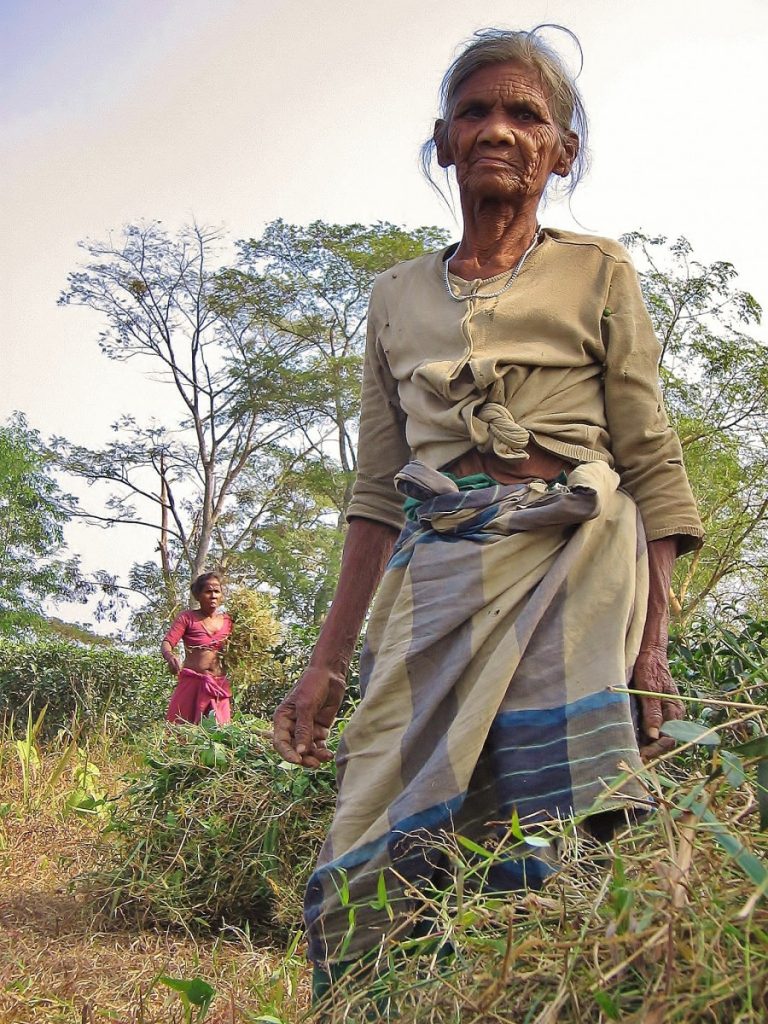
I only spent 10 days in Bangladesh which gave me a very good picture of this country. There are many beautiful places to see and stay here is a very good lesson about how people live in this remote country. I have been here quite a few times, but if I wanted to visit others, it would be very difficult because of the catastrophic political situation. Bangladesh was a country for me very nice, friendly people and beautiful faces of nature. Departure is an unforgettable experience and I would recommend it but before visiting I would advise you to acquaint yourself with the current political situation.



